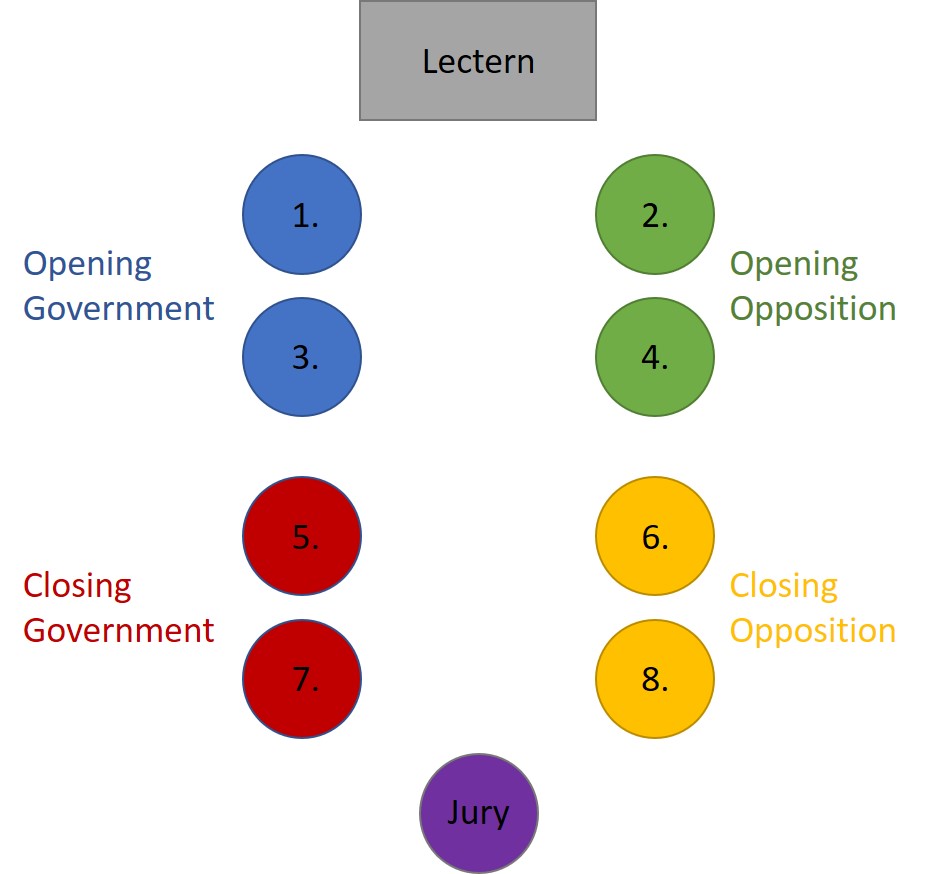Rules
Within Europe, most English-speaking debating is done in the British Parliamentary Style (BPS). We are using this format as well. Moreover, we occasionally use the Open Parliamentary Style (OPD), which is popular in the German debating scene.
BPS

In BPS we have four teams of two speakers each. Two teams speak for the government, two for the opposition. The teams have 15 minutes to prepare for the debate and then two seven-minute speeches each. The first four speakers of the opening teams speak alternately and afterwards the four speakers of the closing teams give their speeches. Between the 1st and 6th minute of a speech, the opposite side has the opportunity to offer questions, which the speaker can take or wave off. A special feature are the two closing speeches, the so-called “Whips”. These should not make a new argumentative contribution, but have the duty to compare, weigh and show why their own team has won the debate.
The adjudication in BPS only has one criterium which is ” persuasion “. The adjudicator or the adjudicators therefore compare which team could convince the most of their own side with their speeches.
OPD
In OPD, there is one team on the government side and one on the opposition side. These consist of three speakers each. In addition, there are 3 “free speakers” who are initially not part of the parliamentary group and who speak after the first four speakers. The teams also have 15 minutes of preparation time in OPD and 7 minutes of speaking time for each speaker of the team. The free speakers, on the other hand, only learn the topic at the beginning of the debate and give 3.5-minute speeches after the first four speakers, in which they must take one of the two sides. After each free speech, the opposing side’s team must give a one-minute rebuttal speech, which is intended to convince the free speaker to switch sides. After the free speakers have spoken, the closing speeches of the teams follow in reverse order (the government speaks last). As in BPS, the final speeches are not supposed to bring any new argumentative material into the debate but have the task to summarize, weigh and explain why their team had the better arguments in the debate.
The evaluation of OPD is done in different categories. There are categories for the speakers and categories for the teams. It is important to note that rhetoric is also evaluated in addition to content. For example, there are also points for demeanor and eloquence.